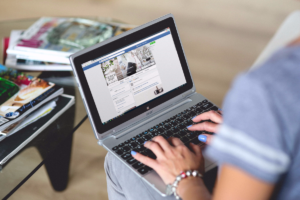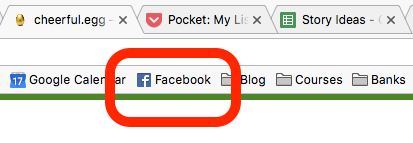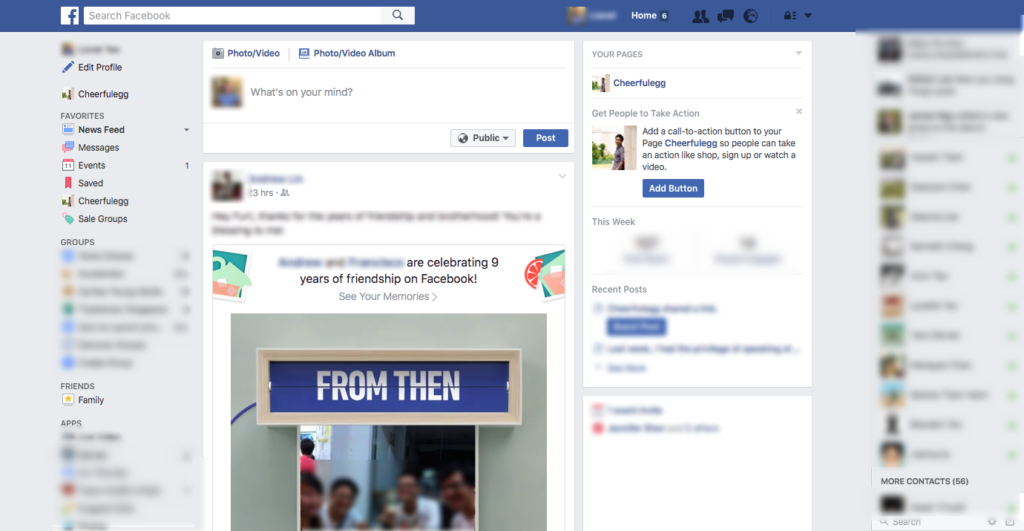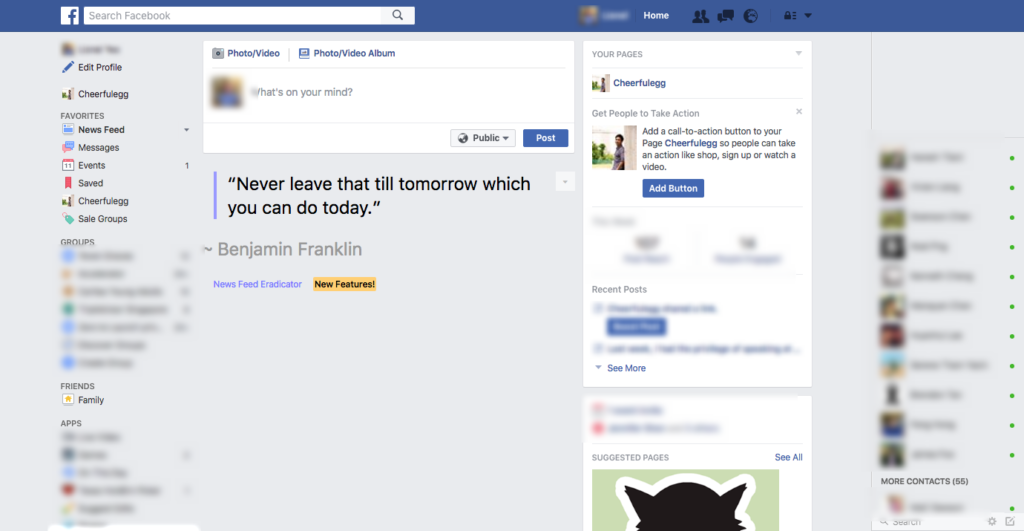 First, let’s get this out of the way: We all use Facebook on the toilet.
First, let’s get this out of the way: We all use Facebook on the toilet.
Don’t even try to deny it – I know you’ve done it. And there’s nothing wrong with that. I had a friend whose family kept a stash of Archie comics on the toilet to help pass the time when they’re uh, passing something else.
So today, when we have our smartphones everywhere we go, Facebook is the new Archie comic. It’s one of those things you do to occupy your bored mind during lull moments like queuing for your fishball noodles, stoning on the bus, and pooping.
The trouble, of course, comes when Facebook occupies too much of our lives. When it:
- Takes away quality time from our spouse and our kids
- Sucks up our time at work
- Distracts us from cool side projects, like learning a new skill or starting a business
- Eats into our sleep time so we’re exhausted the next morning
Facebook Isn’t Entirely Bad
We’re all familiar with how Facebook destroys our productivity: You sit down, wanting to read an article or watch that course or learn investing, then you click over to Facebook “just for 5 mins”. 2 hours later, after you’ve gone down a rabbit hole of Instagram pictures and wahbanana YouTube videos, you emerge feeling guilty and annoyed. Ugh – where did all that time go?
Productivity bloggers loooooove making an enemy out of Facebook. Just Google “Facebook destroys productivity” and you’ll get articles like 15 Reasons Why Facebook Is Ruining Our Lives or Facebook: The World’s Biggest Waste of Time.
Some people take it to the extreme and quit Facebook entirely. But I think these productivity bloggers are missing the point.
Let’s get real: We like Facebook. It’s fun to check out wedding pictures of our college friends. Or laugh at someone’s lame Pokemon Go-related status. Personally, I use Facebook to discover new article ideas. I also use it to share blogposts and reach out to college friends via Messenger. (I swear I’m usually not on the toilet when I do this)
The answer isn’t to completely condemn Facebook. Instead, it’s to treat it like potato chips: How do we enjoy snacking on it once in awhile, while resisting the temptation to overconsume it?
Like saving money, telling us to “be more disciplined” isn’t enough. Instead, by understanding the weaknesses in my psychology, I’ve used a couple of tactics to let me keep using Facebook, while stopping it from interfering with my work.
Here are 2 tactics I use:
Tactic #1: Hide Facebook In A Folder
Facebook used to sit on my bookmarks bar, like this:
However, this made it too convenient to click off to Facebook and get distracted. So I made a simple tweak, and moved it into a “Social” folder in my bookmarks, like this.
My Social folder also contains all the other distracting-but-fun sites like YouTube, Reddit and Netflix.
This is such a simple tweak, but it’s sooooooo powerful. Since these sites aren’t front and centre, I’m less likely to think of them and hence less likely to click on them. Yet, if I ever needto visit Facebook for a legit purpose, I can easily access it.
Out of sight, out of mind. I estimate that this tweak alone reduced my time spent on distracting sites like Facebook by at least 50%.
Tactic #2: Use Newsfeed Eradicator
I discovered this awesome tool from copywriting blogger Neville Medhora. Newsfeed Eradicator is a Chrome extension that wipes away your Facebook Newsfeed and replaces it with an annoyingly-relevant productivity quote.
So your Facebook newsfeed will go from something like this….
To this:
This makes perfect sense, because the Newsfeed is often the most distracting element of Facebook. But eliminating it from my laptop browser, I’m preventing distractions from getting some real work done.
However, I only apply this on my laptop, not on my phone.
Having Facebook on my phone isn’t that big of a productivity-killer, since it’s usually away from my desk when I’m working anyway. But it’s super-helpful that I get to check it during the lull moments when I’m commuting, queuing, or yes, on the toilet.
Kind of a win-win!
The “Less Convenient” Principle
Tactics like these work because they make it less convenient to do the behaviour you want to reduce. There’s loads of psychology research showing that these methods are deadly effective – not just for productivity, but for your finances, health, and just about any domain.
Think about how you can apply this principle to help you:
- Spend less money: Instead of keeping all your money in the same bank account, save a part of your salary in another savings account with no ATM card. The only way to retrieve that money is to physically go to the bank – the inconvenience will help you think twice before you spend it on dumb things.
- Eat less junk food: Put all your cookies and chips in a high cabinet, out of sight, while keeping healthy snacks like nuts and veggies in easy-to-reach containers. When hunger hits you – you’re more likely to reach for the healthier option.
What other bad habits are you hoping to cut down on, and how can you apply the “Less Convenient” Principle to help you? Let me know in the comments below. I read every one.



